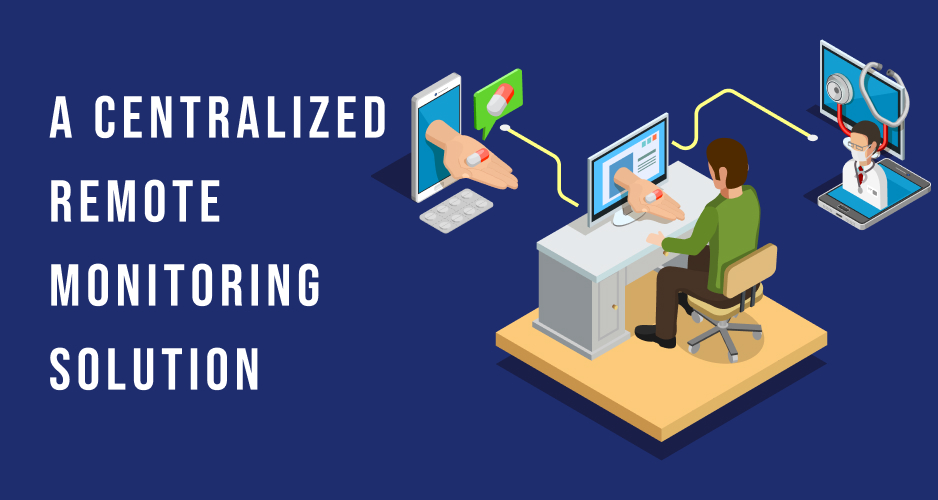Nu10 Insights
Practitioners/Doctors
Gaming Therapy For ADHD Patients
Want to Discuss more?

Introduction
The first description of what may have been ADHD-like symptoms can be traced back to the early 18th century when a Scottish physician named Sir Alexander Crichton wrote a book describing "Mental Restlessness" in children. However, it wasn't until the late 19th century that the first formal description of ADHD was recorded by a British physician named Sir George Still. Since then, the concept of ADHD has evolved and changed over time, with numerous studies conducted to better understand the condition and its underlying causes. Today, ADHD is recognized as a common and treatable disorder that affects millions of people worldwide.
What is ADHD?
ADHD, or Attention Deficit Hyperactivity Disorder, is a neurodevelopmental disorder that affects both children and adults. It is characterized by symptoms such as inattention, hyperactivity, and impulsivity, which can impact daily life and functioning. ADHD is a common condition, with prevalence rates estimated to be around 5-10% in children and 2-5% in adults. The symptoms of ADHD can affect various areas of life, including academic or work performance, relationships, and overall well-being. Individuals with ADHD may struggle with tasks that require sustained attention, organization, time management, and impulse control.
Understanding Gaming Therapy
Gaming therapy, also known as digital or video game-based therapy, is a form of therapeutic intervention that utilizes video games to address specific therapeutic goals or objectives, including those related to ADHD. It involves the intentional use of games as a tool to improve cognitive, emotional, social, or behavioral skills in individuals with ADHD.
There are several different types of gaming therapy that can be used as interventions for individuals with ADHD:
- Serious games Serious games are designed with a specific purpose in mind, such as education, training, or therapeutic purposes. These games are created with the intention of addressing specific therapeutic goals or objectives, such as improving attention, impulse control, or executive functioning skills in individuals with ADHD.
- Gamified interventions Gamified interventions involve incorporating game elements, such as rewards, points, or challenges, into non-game activities or tasks to make them more engaging and motivating. For example, a productivity app that uses game-like features to help individuals with ADHD manage their time, tasks, and responsibilities more effectively.
- Virtual reality (VR) games Virtual reality games are immersive games that use virtual reality technology to create a simulated environment that users can interact with. VR games can be designed to target specific therapeutic goals, such as improving attention, impulse control, or social skills in individuals with ADHD.
Gaming therapy for ADHD may involve various game mechanics, such as problem-solving, decision-making, planning, working memory, and self-regulation, depending on the specific goals of the intervention. It can be used in conjunction with other traditional interventions, such as medication, behavioral therapy, or psychoeducation, to provide a comprehensive and individualized treatment approach for individuals with ADHD.
Benefits of Gaming Therapy:
- Improved Attention and Focus Many video games require sustained attention and focus, which can help individuals with ADHD improve their ability to concentrate and stay on task. Gaming therapy can provide a structured and engaging environment that promotes attention and focus, potentially transferring these skills to other areas of daily life.
- Enhanced Impulse Control: Some games incorporate elements that require individuals to regulate their impulses, make thoughtful decisions, and delay gratification. These skills can be beneficial for individuals with ADHD who may struggle with impulsive behaviors in various settings, such as impulsively interrupting others or acting impulsively without considering consequences.
- Cognitive Skill Development: Gaming therapy can promote the development of cognitive skills, such as problem-solving, decision-making, planning, and working memory. These skills are often areas of difficulty for individuals with ADHD, and practicing them in a gaming context can potentially transfer to real-world situations.
- Motivation and Engagement: Video games are known for their engaging and motivating nature. Gaming therapy can tap into this motivation to encourage individuals with ADHD to participate in therapeutic activities with increased interest and enthusiasm, potentially leading to improved treatment outcomes.
- Tailored Interventions: Gaming therapy can be customized to meet the specific needs and preferences of individuals with ADHD. Serious games, gamified interventions, and virtual reality games can be designed or adapted to target the unique challenges faced by individuals with ADHD, providing personalized and targeted interventions.
- Game-Based Strategies Game-based strategies can be employed in gaming therapy to enhance the therapeutic effects for individuals with ADHD. Here are some strategies and techniques that can be used:
- Goal-setting: Setting clear and achievable goals can provide structure and motivation in gaming therapy. Goals can be related to specific therapeutic objectives, such as improving attention, impulse control, or cognitive skills. It's important to involve the individual with ADHD in the goal-setting process and ensure that the goals are realistic, measurable, and relevant to their needs.
- Managing Distractions: Individuals with ADHD often struggle with distractions, both external and internal. In gaming therapy, it can be helpful to minimize external distractions, such as turning off notifications or finding a quiet environment for gaming sessions. Additionally, teaching techniques to manage internal distractions, such as mindfulness or self-talk, can be beneficial for individuals to stay focused during gaming sessions and generalize these skills to other areas of life.
- Self-Monitoring: Encouraging individuals with ADHD to self-monitor their behaviors, emotions, and progress during gaming therapy can promote self-awareness and self-regulation. This can involve keeping track of their gaming performance, reflecting on their in-game behaviors or emotions, and identifying patterns or triggers for certain behaviors. Self-monitoring can help individuals become more aware of their strengths and weaknesses, and develop strategies to manage them effectively.
- In-game Rewards and Incentives: Utilizing in-game rewards and incentives can enhance motivation and engagement in gaming therapy. For example, earning points, unlocking levels, or receiving virtual rewards can serve as positive reinforcement for desired behaviors or achievements. These rewards can be used to reinforce therapeutic goals, such as staying on task, managing impulsivity, or using effective problem-solving strategies. However, it's important to carefully design the rewards and incentives to prevent over-reliance on external rewards and ensure that the focus remains on the therapeutic objectives.
- Structured Game Sessions: Establishing a structured schedule and routine for gaming therapy sessions can help individuals with ADHD develop a sense of predictability and structure, which can be beneficial for their executive functioning skills. This can involve setting specific times for gaming sessions, planning breaks, and managing the duration of the sessions to prevent overstimulation or fatigue.
Conclusion
In conclusion, gaming therapy has the potential to be a valuable adjunctive treatment for individuals with ADHD, providing an innovative and engaging approach to address the challenges of ADHD. By incorporating game-based strategies and considering relevant considerations, gaming therapy can offer a promising option for individuals with ADHD to improve their attention, focus, impulse control, and cognitive skills in a fun and interactive manner.
If you are in search of a software development partner, then Nu10’s team can play a vital role in your vision of developing such games. Our team of experienced developers and designers understands the unique needs and challenges faced by individuals with ADHD. We leverage our expertise to develop engaging and therapeutic games that cater to those needs. Our games are carefully crafted to provide a stimulating and immersive experience, while also incorporating elements that can help improve attention, focus, and cognitive skills. Through our innovative game design, we strive to harness the power of gaming as a form of therapy for ADHD patients, promoting their cognitive development and overall well-being.
Nu10 also has experience in the entire software development of Class II- clinical-grade remote monitoring wearables as well as FDA-approved mobile and web applications, with embedded programming and Internet of Things (IoT) technology for monitoring patient vitals. Nu10’s expertise lies in "Software as a Medical Device" (SaMD), where we design and develop software solutions that help patients and caregivers alike.
About Author
Mohit Kataria
Mohit is a tech-enthusiasts who have founded and built Manthan Research and Analytics, which got acquired by M3 and got rebranded to m360 Research. M3 is a $40bn+ Japanese Medical Information firm which is the youngest Nikkei 225 company. During his tenure there, it specialized in using cutting-edge advanced analytics techniques like NLP, unstructured data analytics, machine learning to drive actionable intelligence. He enjoys breaking new ground, building & scaling high-performing teams ground up, and creating new solutions.








